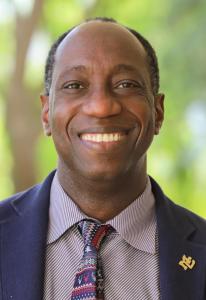
Each year in October, Moorpark College proudly observes Hispanic Heritage Month by engaging with our students to explore the rich history of Hispanic and Latinx communities. This annual celebration affirms the wisdom that diversity in thought, background, and experiences is paramount to our development as individuals and a society.
This value of celebrating diversity and people of all backgrounds is central to Moorpark College’s steadfast commitment to Diversity, Equity and Inclusion, also known as DEI. Recently, DEI has become highly politicized, with much confusion and speculation surrounding its purpose. In education, this controversy has prompted 44 states to introduce legislative bans on DEI education, 18 of which have already passed. Millions of Americans have been led to believe that DEI is synonymous with affirmative action, or that it’s harmful for students who are not members of historically marginalized groups.
The unfortunate reality of this misconception is that it that it could not be further from the truth. The goal of DEI in higher education is to ensure equitable outcomes for all students, serving as the foundation of our promise that every student, regardless of their identity or background, should be given an equal chance to thrive. However, countless higher education institutions are being pressured to downplay their DEI efforts, forcing many to rename or reallocate these initiatives to minimize scrutiny and preserve these critical programs.
Protecting the benefits all students gain from DEI necessitates that colleges and universities connect with our communities, dispel misconceptions and fears surrounding DEI, and affirm our commitment to supporting the success of all students in higher education.
So, let’s set the record straight: the roots of DEI can be traced back to the 1980s and 90s, when the era of affirmative action and the equal opportunity movement evolved to adopt a broader spectrum of diversity. In order to achieve true equality, it was clear the equality movement needed to recognize and address the needs of all individuals from various identity groups. Thus, the movement shifted away from primarily focusing on gender and race, and began pursuing the principles of Diversity, Equity, and Inclusion for all.
Today, DEI is most simply described as a set of values and practices that aim to create better conditions for all individuals. In higher education, DEI serves as a guiding principle that informs our mission to enhance student support. Higher Education’s commitment to DEI means identifying ways in which we can protect and improve every student’s chance to achieve academic and professional success.
At Moorpark College, this means data-driven improvements to our institutions’ policies, programs, and resources. Our college regularly engages in a collaborative data analysis process in which leadership, faculty, classified professionals, and students examine success outcomes and identify progress gaps among student groups. Based this data, we develop initiatives that bolster the opportunities and support resources for all students, aiming to connect struggling students with the support necessary to eliminate these achievement gaps. For instance, in light of data suggesting Hispanic students are less likely to pursue or persist in STEM fields, Moorpark College launched “STEM Impacto,” a program that provides mentorship and resources for STEM majors.
Our DEI work is also focused on national data that identifies achievement gaps among disproportionately impacted student groups, such as our students with disabilities and LGBTQ+ students. In collaboration with our ACCESS office—which supports students with disabilities—the Office of Diversity, Equity and Inclusion will launch our first “Disability Awareness Week,” October 21-25, focused on enhancing the accessibility of our college. The goal of this week is to raise awareness and provide training and professional development opportunities that will strengthen our ability to better serve and support our students.
Currently, we are administering a campus self-assessment developed by the Campus Pride Index, a national organization led by college students advocating for equality, to assess where we are on eight “LGBTQ Friendly Factors,” including institutional commitment and policy and inclusion. This effort is meant to provide us information as we strategically plan to support the needs of this population today and into the future. We are also excited about the ongoing development of our Moorpark College Pride Center, which will serve as an all-inclusive space for students in need of support and resources related to gender, identity, and sexual orientation.
The truth and beauty about DEI is that it’s not about giving certain students special treatment; DEI is the guiding principle that encourages institutions to ensure that every student, not just those fortunate enough to have the right resources or background, has the ability to earn a degree that can set them up for life-long success. Moorpark College is immensely proud to share our work to create a campus culture that celebrates and protects diversity, equity, and inclusion, and we encourage other institutions to do the same. Diversity in thought and expression benefits us all, as it is only through the collaboration of all voices and perspectives that we can build a future that is better and brighter for all.